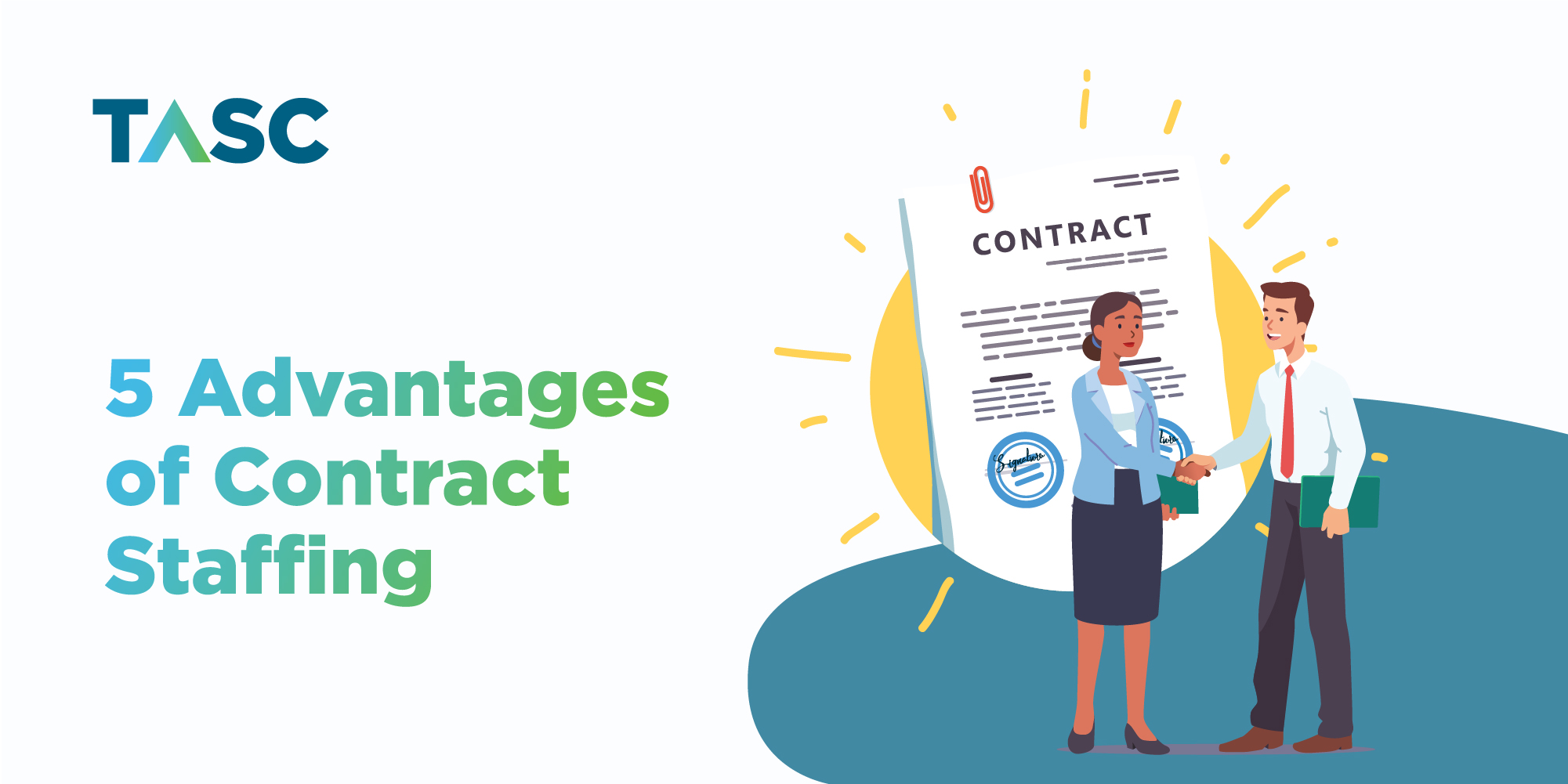Flexibility at Its Best: Solving Seasonal Workforce Needs with Contract Staffing
Businesses across various industries face challenges when it comes to managing fluctuating workforce needs, especially during peak seasons. Whether it’s the holiday shopping rush, the agricultural harvest season, or the peak travel periods for the hospitality industry, the demand for temporary workers can significantly vary. These spikes in demand often require businesses to quickly scale their workforce, and the solution to this challenge lies in contract staffing.
In this blog, we’ll explore how contract staffing solutions provide the flexibility and efficiency that businesses need to meet seasonal demands while reducing costs and maintaining productivity. Let’s take a deeper into understanding why contract staffing is the ideal solution for managing seasonal workforce needs.
Understanding Seasonal Workforce Needs
What Are Seasonal Workforce Needs?
Seasonal workforce needs are a direct result of fluctuations in demand within specific industries during certain times of the year. Industries such as retail, agriculture, hospitality, tourism, and construction often experience surges in business activity at various times, requiring a temporary increase in staff. For example, retail businesses need additional workers during the holiday shopping season, while agricultural companies require labor during harvest times.
These seasonal needs arise due to various factors, such as weather conditions, holidays, peak tourist seasons, or even the introduction of new products. However, managing these peaks can be a challenge, particularly for businesses that are not equipped to handle a sudden surge in demand without the added burden of long-term staffing commitments.
Challenges of Managing Seasonal Workforce Needs
For businesses, the challenge of managing seasonal workforce demands includes the need to balance between maintaining an adequately skilled workforce and avoiding the overhead costs of hiring permanent employees. If a company hires too many full-time employees, it may find itself struggling with underutilized workers after the season ends. On the other hand, hiring too few can result in missed opportunities and a decline in customer satisfaction due to insufficient staffing.
This is where contract or flexible staffing comes in, providing a perfect solution for businesses that need the flexibility to scale their workforce up or down as required, without the financial and logistical burden of permanent hires.
What is Contract Staffing?
Contract staffing refers to hiring temporary or short-term workers for a specified period, typically based on the needs of a business. These workers are employed for a set duration to fulfill specific tasks or projects, and their contracts end once the job or the season is over. Unlike full-time employees, contract workers are not entitled to the same benefits, such as long-term employment contracts, retirement plans, or healthcare packages.
Types of Contract Staffing
Contract staffing can take various forms, including:
- Temporary Workers: Employees hired for a short-term role to meet specific business needs, such as filling in during a busy season.
- Project-based Workers: Individuals brought in for a fixed duration to work on a particular project or task.
- Part-time Workers: Employees hired to work fewer hours than a full-time schedule but for an extended period.
How Contract Staffing Solves Seasonal Workforce Challenges
Flexibility in Scaling Workforce
One of the biggest advantages of contract staffing is its inherent flexibility. Seasonal workforce planning allows businesses to scale quickly and efficiently. Whether you need a handful of workers for a few weeks or dozens for several months, contract staffing allows you to tailor your workforce to match seasonal demand. This ensures that businesses are adequately staffed to meet customer expectations without being overburdened with unnecessary labor costs during off-seasons.
Cost Savings
Seasonal workers on a contract basis can offer significant cost savings for businesses. Permanent employees come with long-term commitments, including salaries, benefits, health insurance, and other perks. When these employees are not required, businesses must still pay them, leading to wasted resources. Contract workers, however, are typically only paid for the duration of their employment, which can substantially reduce overall labor costs.
Moreover, hiring contract workers helps businesses avoid costs associated with recruiting and training permanent employees. For seasonal positions, where skills may be needed only temporarily, training permanent employees is often not cost-effective.
Reduced Overhead and Training Costs
Training new staff can be a time-consuming and expensive process. Seasonal hiring through staffing agencies often don’t require training employees to the same extent as full-time hires. Contract workers typically come with the necessary experience and skills for the role, which reduces onboarding and training costs. They can get to work quickly, ensuring productivity is not lost during peak seasons.
Quick Hiring and Onboarding
Another challenge of managing seasonal workforce needs is ensuring timely hiring and onboarding. With traditional recruitment processes, it may take weeks or months to hire permanent employees, which is often too long to meet the immediate needs of the business.
Contract staffing offers an efficient solution by allowing businesses to bring in workers quickly. Many recruitment agencies specialize in sourcing qualified contract staff, making the hiring process faster and less complicated. This helps companies avoid delays and ensure that they are adequately staffed when the busy season arrives.
Specialized Skills for Specific Projects
Contract workers can be hired for specific tasks that require specialized knowledge or skills. For example, an event management company may need temporary workers with expertise in logistics or customer service during a large event. Similarly, a tech company may need seasonal staff to help with product launches or project-based work.
By leveraging contract staffing, businesses can tap into a pool of skilled professionals who have the expertise needed for short-term or seasonal tasks, ensuring that projects are completed efficiently and to a high standard.
Benefits for Employees
Increased Work Opportunities
Contract staffing provides employees with flexible work opportunities, which can be especially appealing for those seeking temporary or seasonal employment. Many people prefer contract roles because they offer the freedom to work for a limited period and then move on to other projects or roles, providing a better work-life balance.
Additionally, contract positions often offer competitive pay rates, which can attract individuals who prefer short-term engagements over long-term commitments.
Skill Enhancement and Experience
Contract work can also provide employees with valuable experience across different industries and job roles. Workers gain exposure to new environments, which can help them build a diverse skill set and improve their employability. For businesses, this means they can tap into a pool of experienced professionals who are ready to contribute from day one.
Work-Life Balance
For many individuals, contract staffing offers the flexibility to balance personal and professional lives. Whether it’s students seeking temporary work during breaks or professionals looking for part-time or project-based roles, contract positions can provide greater work-life balance, especially during off-seasons.
Opportunities for Long-Term Employment
Some contract workers may transition to full-time roles once their contracts are complete, if they have demonstrated exceptional performance. Businesses benefit from this arrangement as they can test employees’ skills and cultural fit before offering them permanent employment, which helps reduce the risks associated with long-term hires.
Wrapping Up
Contract staffing offers businesses the flexibility, cost-efficiency, and agility needed to manage seasonal workforce demands effectively. By leveraging contract workers, companies can scale their workforce quickly, reduce labor costs, and bring in specialized skills to meet specific needs. Moreover, employees benefit from increased job opportunities, valuable experience, and the flexibility to balance work and life.
For businesses looking to streamline their seasonal hiring processes, contract staffing is a strategic solution that ensures peak-season operations run smoothly and efficiently. Embrace the flexibility of contract staffing, and your business will be better equipped to handle the fluctuations of seasonal demands while maintaining a lean and productive workforce.





